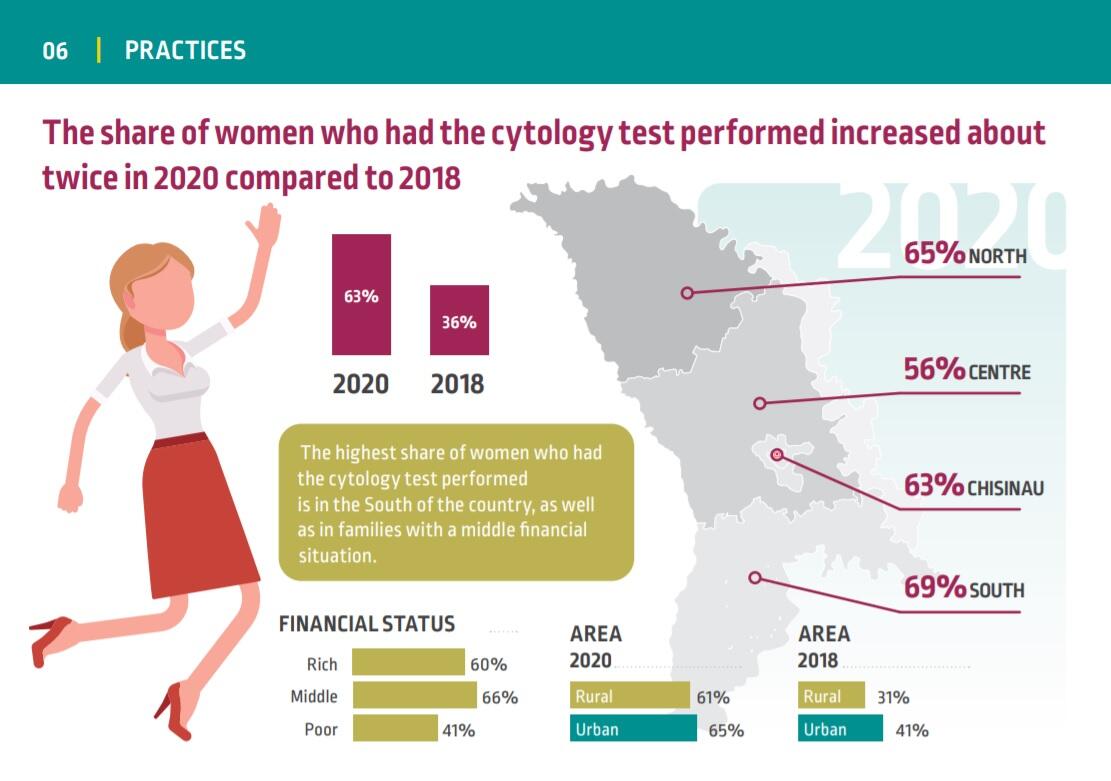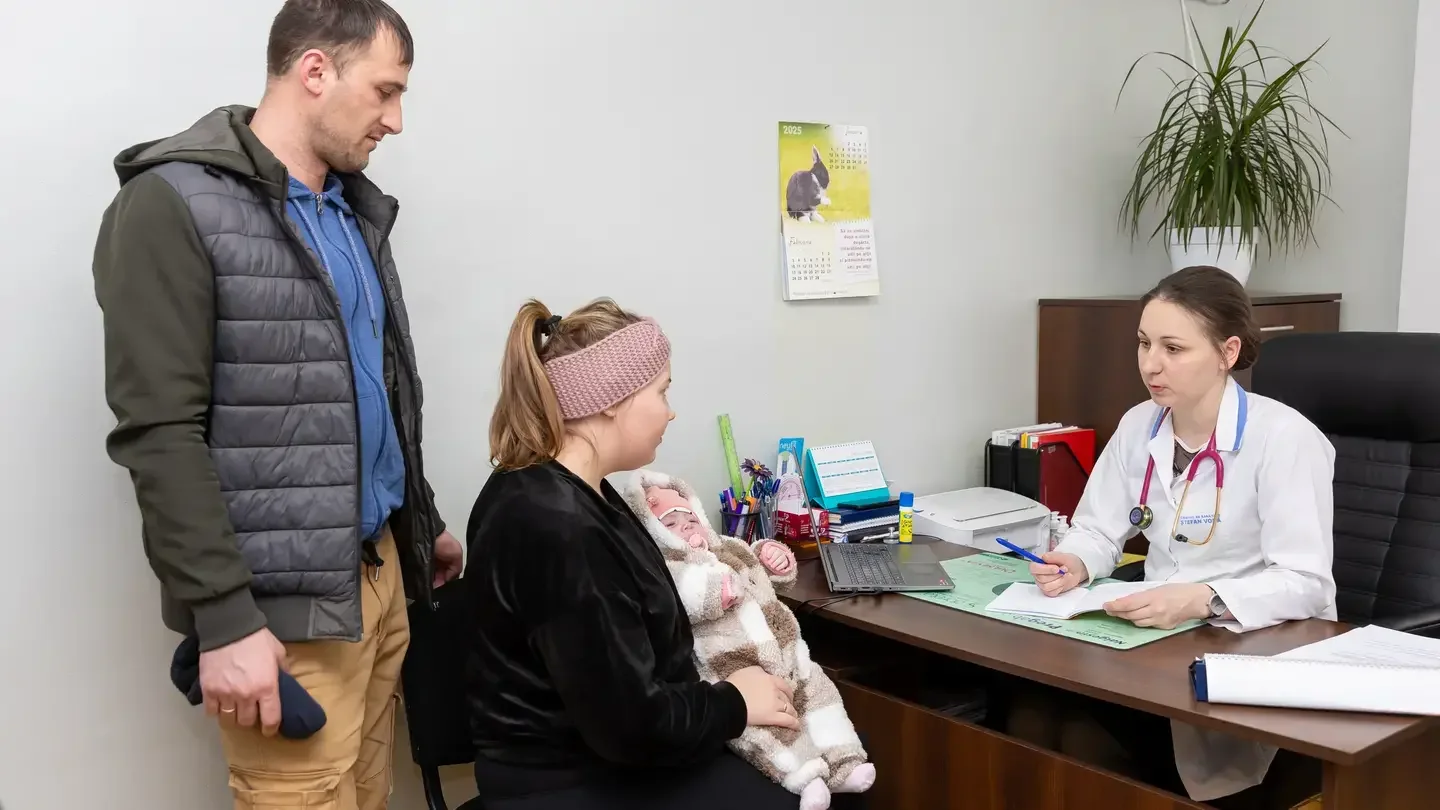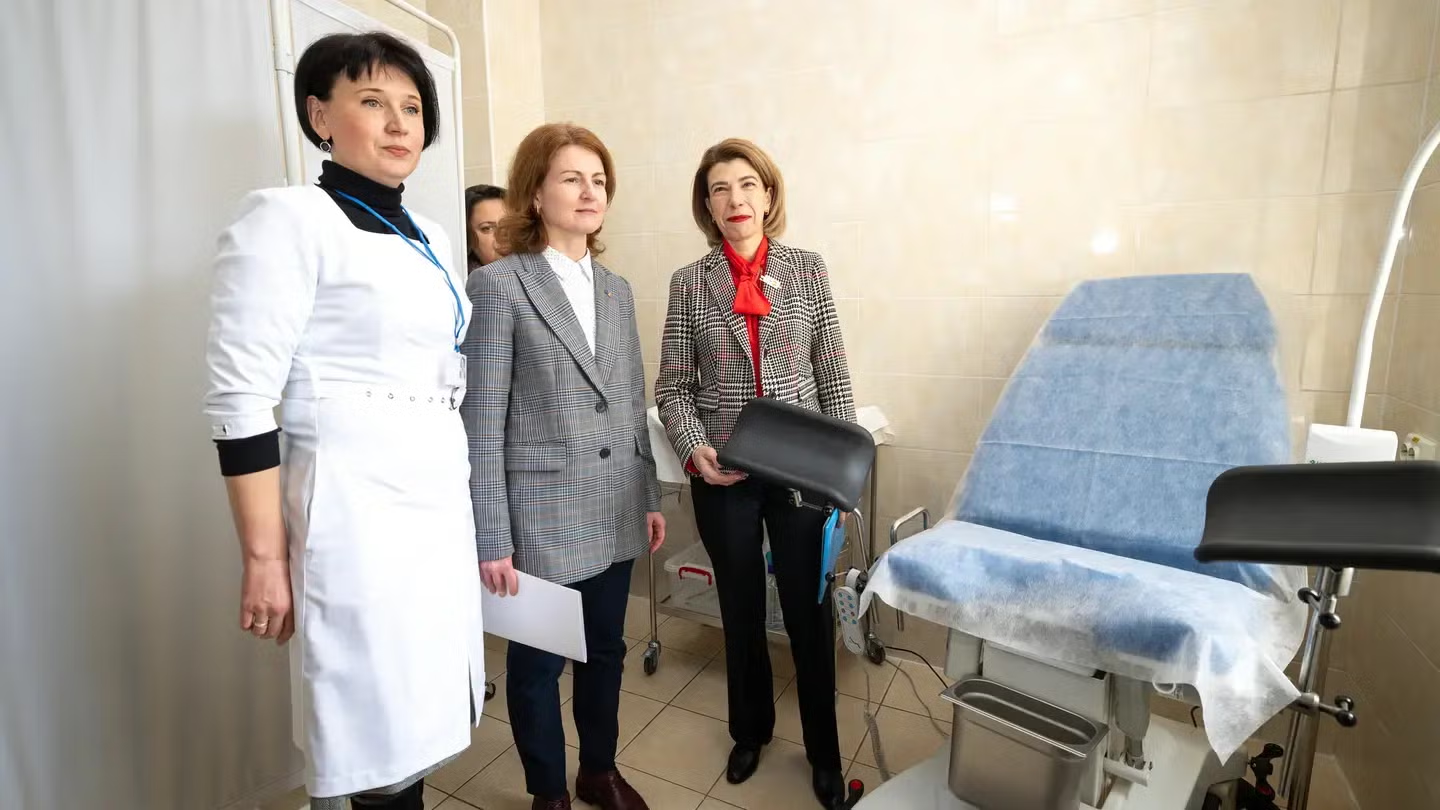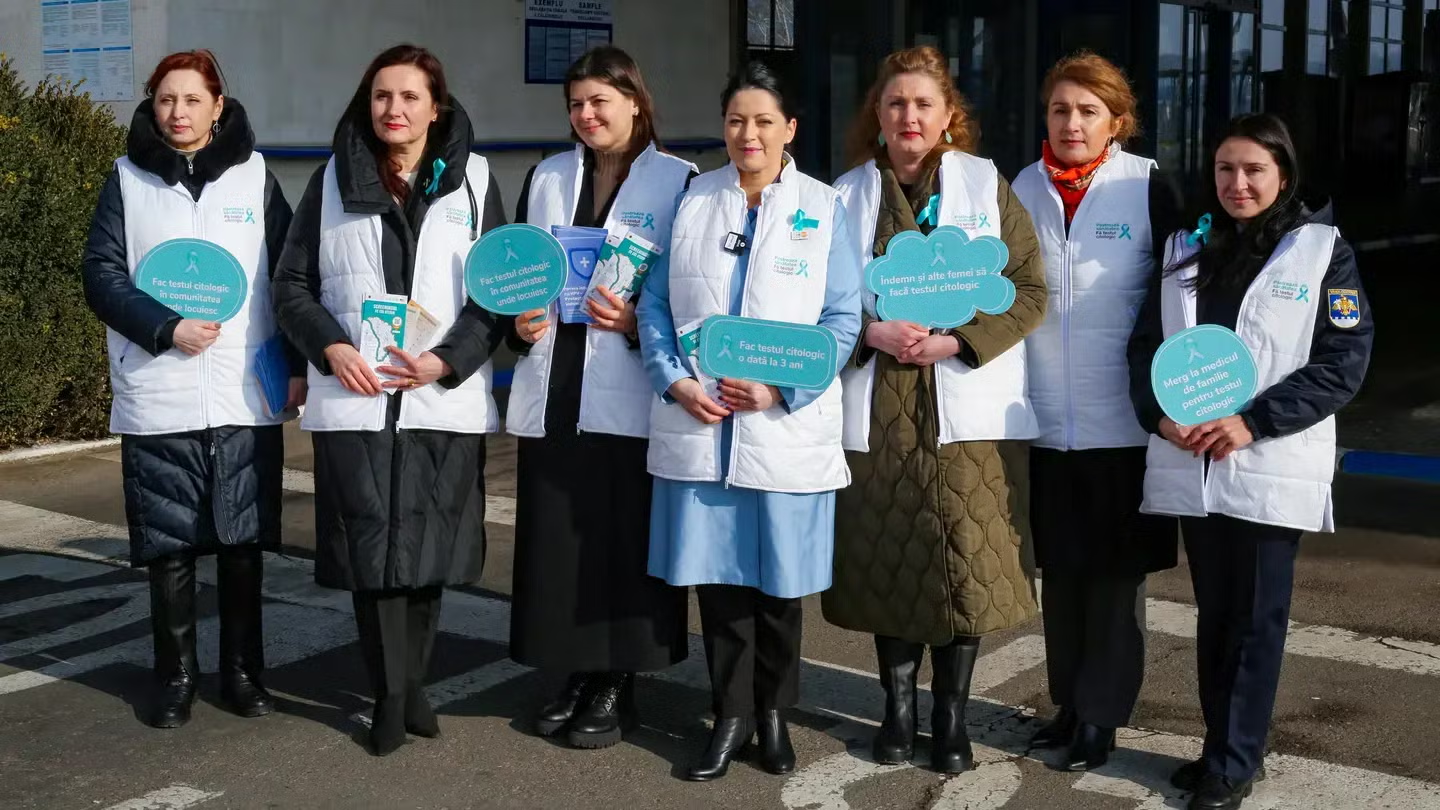63% of the women aged between 25 and 61 in Moldova did the Pap smear to prevent cervical cancer in 2020, as opposed to only 36% in 2018. Most of the women who did the Pap test are from southern Moldova, from families with the average financial situation, says the post-intervention study "Assessment of Knowledge, Attitudes, and Practices on Cervical Cancer Prevention in the Republic of Moldova." The survey was conducted under the coordination of the Ministry of Health, Labor and Social Protection, with the support of UNFPA, United Nations Population Fund, and the Swiss Agency for Development and Cooperation (SDC) within the 'Cervical Cancer Prevention in the Republic of Moldova' Project.
A similar study carried out two years ago showed more than half of the target segment women never did a Pap test because of lack of time, fear, or lack of information about the screening places. This year's study shows that the situation has improved in several respects. The level of awareness of cervical cancer prevention among women aged between 25 and 61 increased. 62% of them knew about the Pap test in 2020, as against 47% in 2018.

Also, 71% of the women who know about the Pap test know that this can be done free after going to the family doctor. The women aged between 36 and 45, know more about the availability of the Pap test, as opposed to women from other age brackets.
Another novelty is the increase of the share of women who performed the Pap test at the initiative of the family doctor - from 40% in 2018 to 51% in 2020, which shows an improvement in communication and collaboration between the family doctor's team and the population, especially women aged 25-61, on how to access cervical screening services.
Marina Golovaci, Secretary of State at the Ministry of Health, Labor and Social Protection, said cancer is actually a major problem at national and global levels, with cervical cancer ranking 4th by the new cases recorded among women and first among women aged between 15 and 44. About 300 new cases of cervical cancer have been logged annually in Moldova during the last few years. As many as 170 women die annually because of cervical cancer. A woman dies from this disease every two days.
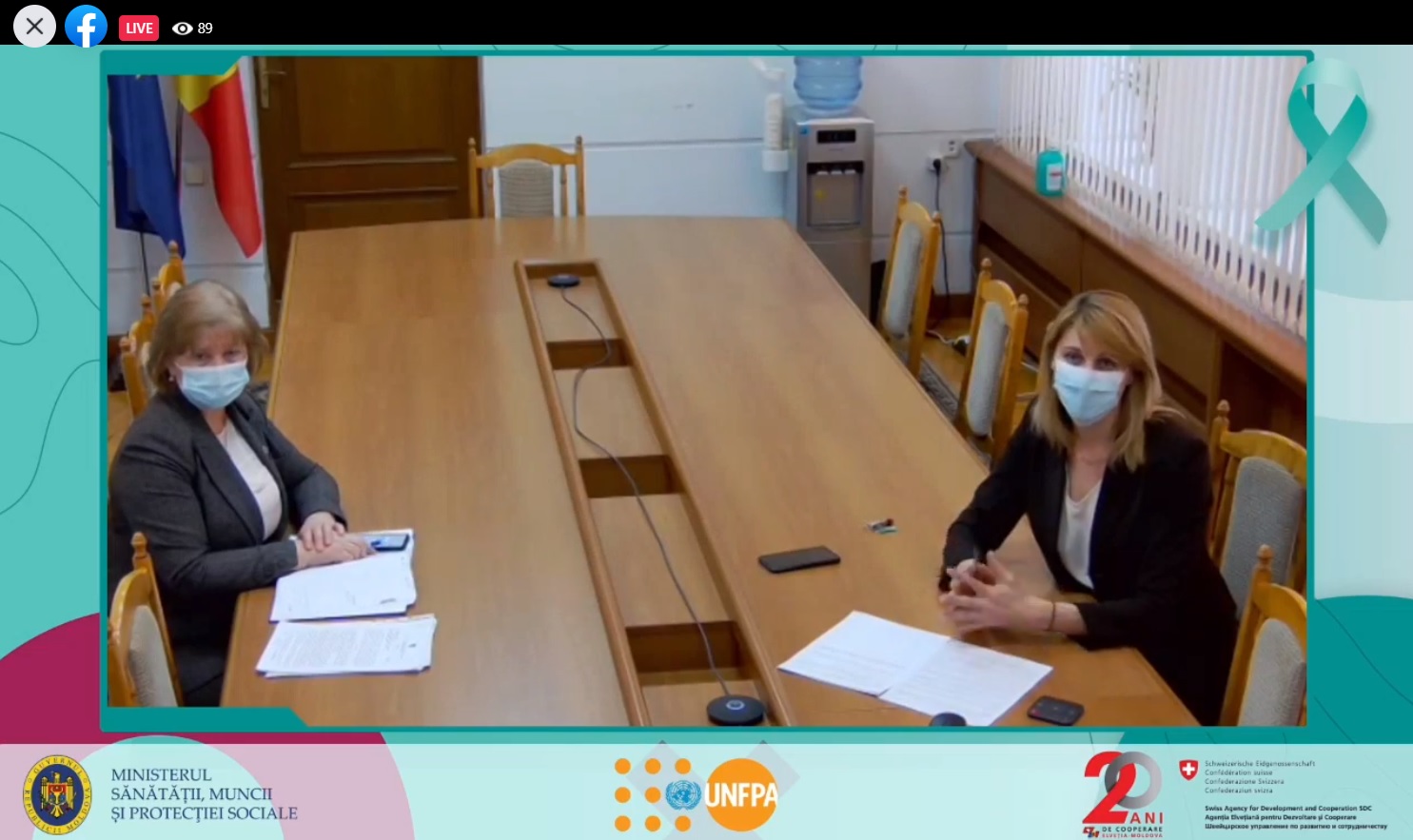
"We support the actions to prevent cervical cancer as this is a disease that represents an enormous emotional and financial burden on women and their families," said Nigina Abaszada, UNFPA Resident Representative in Moldova. "The study shows the level of awareness of the necessity of doing a Pap test has increased. We are glad that today we can speak about a positive tendency in the prevention of cervical cancer in the Republic of Moldova, which is due to the efficient cooperation between all the involved players and the public information campaign "Stay Healthy! Do the Pap-test" that urged all the women to do the prevention test. Further on, we need to accelerate our efforts so as to reach zero cases of cervical cancer."
"Healthcare and prevention of non-communicable diseases, including cervical cancer, is one of the priorities of the Swiss Government. An effective healthcare system means quality and accessible health services for every person and systematic public information for everyone. We hope that these efforts will continue despite the difficulties faced by the health system in the context of the pandemic crisis," said Valeriu Sava, Health Program Coordinator of the Swiss Cooperation Office in the Republic of Moldova.
Cervical cancer can be easily prevented by performing anti-HPV vaccination of girls in adolescence, as well as cervical screening performed every three years by women aged 25-61 years. In the Republic of Moldova, the Pap-test for the prevention of cervical cancer can be performed free of charge at the family doctor.
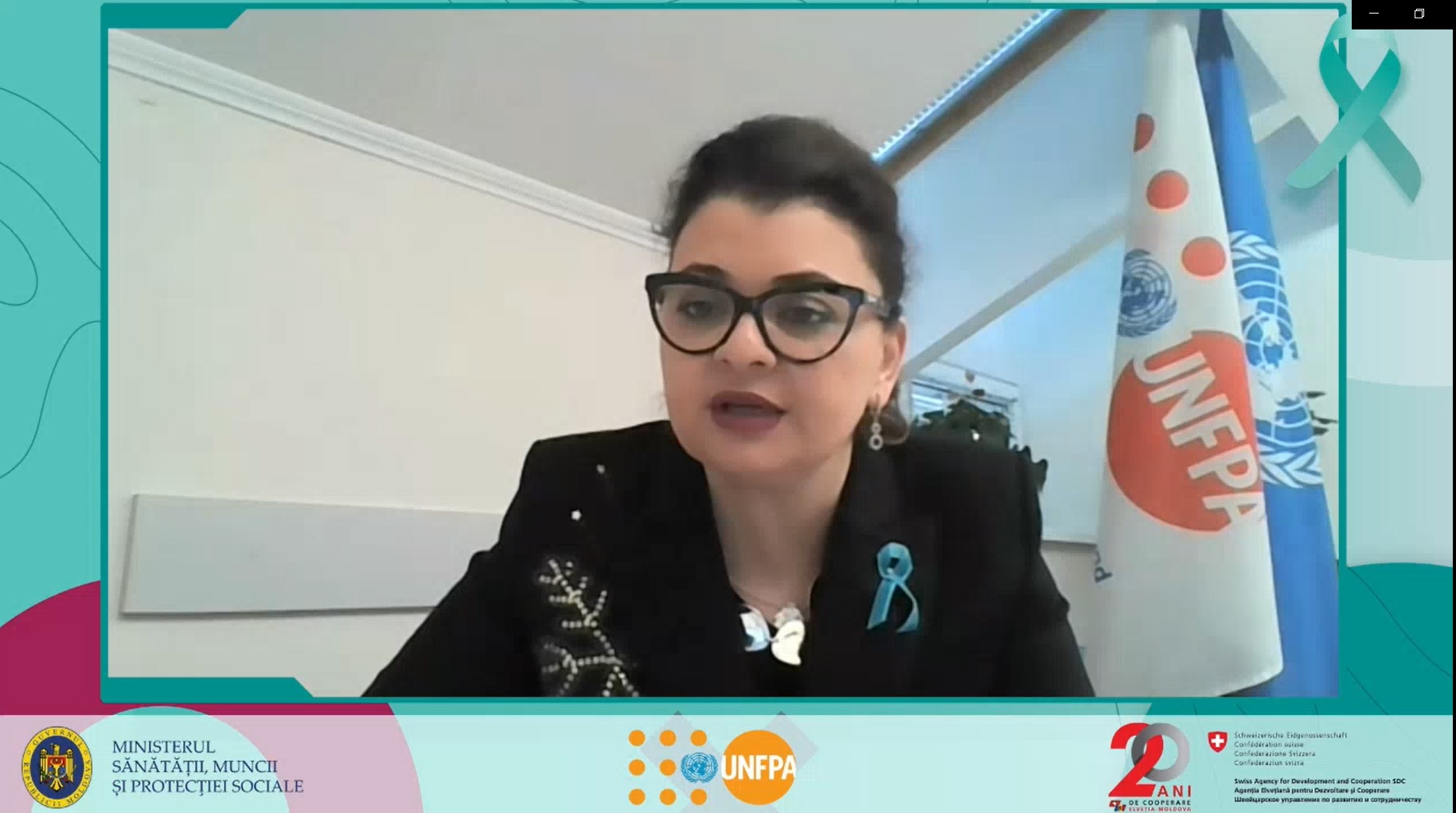
The national post-intervention study on knowledge, attitudes, and practices in the field of cervical cancer prevention in the Republic of Moldova was conducted in autumn 2020, on a sample of 1142 women, including a qualitative component in the form of in-depth interviews conducted with 30 women (25-61 years old), 30 doctors and nurses and 15 health policy experts.
The study has a margin of error of +/- 3% and was conducted by Magenta Consulting under the auspices of the Ministry of Health, Labor and Social Protection, with the support of the UN Population Fund (UNFPA) and the Swiss Agency for Development and Cooperation (SDC) within the project "Prevention of cervical cancer in the Republic of Moldova".

